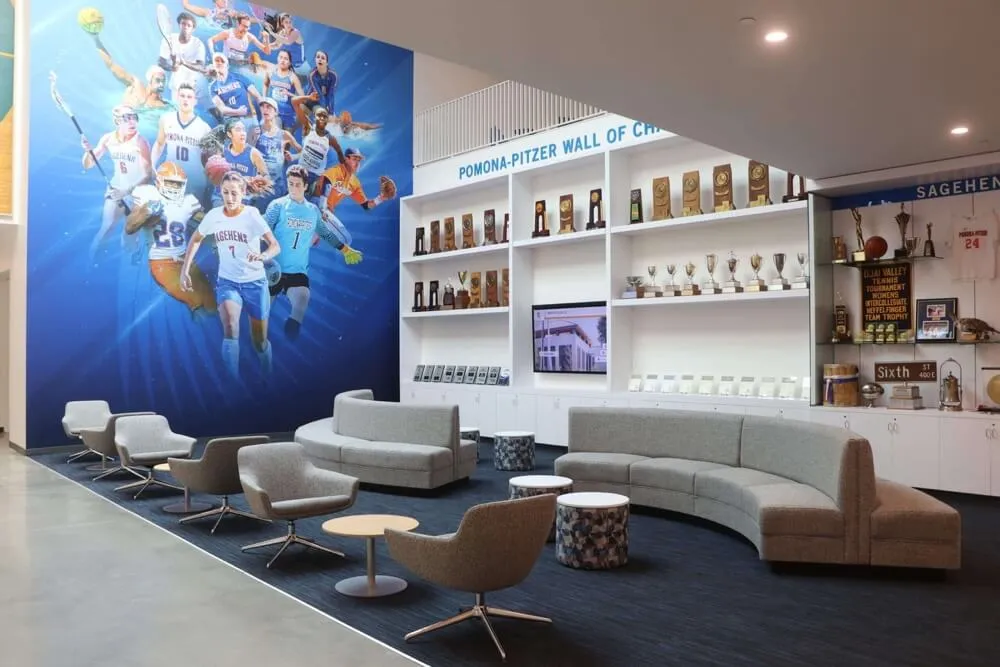When a lacrosse player earns all-star recognition—whether through USA Lacrosse All-American honors, all-conference selections, or all-state teams—they join an elite group representing the pinnacle of athletic achievement in one of America’s fastest-growing sports. These prestigious selections acknowledge exceptional skill, tactical intelligence, leadership, and competitive excellence that distinguishes athletes among thousands of competitors nationwide. Yet many schools and lacrosse programs struggle to provide recognition systems that adequately honor these achievements while preserving program heritage and inspiring future generations of athletes.
Picture the moment: A senior midfielder learns she’s been named a USA Lacrosse All-American—one of approximately 500 players nationwide to receive this prestigious honor. Her coaches celebrate years of player development paying off, teammates recognize one of their own has achieved something truly special, and the entire lacrosse community takes pride in this national recognition. Local media features the achievement, college coaches take notice, and social media explodes with congratulations.
But within weeks, this remarkable achievement fades from visibility. A small plaque might join dozens in an overcrowded trophy case. The newspaper article gets recycled. Social media posts scroll into history. And a freshman player in the program has no easy way to discover that athletes from her school regularly earn national all-star honors—missing inspiration to believe she too might achieve elite recognition.
This scenario repeats across lacrosse programs nationwide. All-star athletes receive well-deserved recognition in the moment, yet schools struggle to provide lasting honors that preserve achievements and leverage them to inspire program excellence. Traditional recognition methods—plaques, trophy cases, yearbook pages—cannot capture the full significance of all-star honors or make them continuously visible to athletes who need this inspiration most.
Modern digital recognition displays transform how lacrosse programs celebrate all-star athletes. Interactive touchscreen systems create comprehensive archives showcasing every all-star honoree in program history, rich multimedia profiles telling complete achievement stories, searchable databases enabling instant discovery of excellence, and dynamic content that inspires current athletes while preserving institutional legacy.
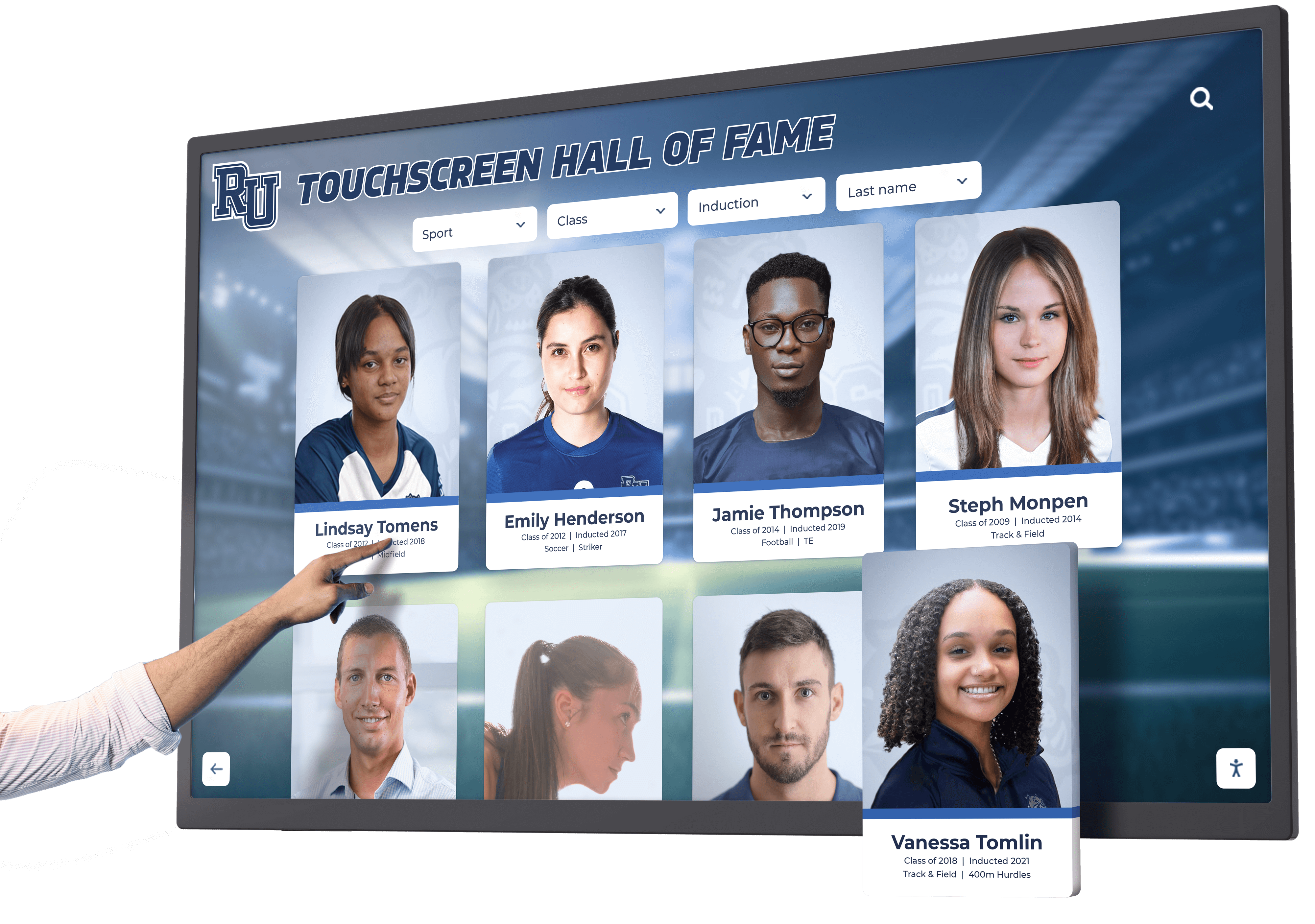
Understanding Lacrosse All-Star Recognition Levels
Before exploring recognition solutions, understanding the various levels of lacrosse all-star programs and what they represent provides essential context for implementing comprehensive recognition systems.
USA Lacrosse All-American Recognition
USA Lacrosse All-American honors represent the most prestigious individual recognition available to high school lacrosse players. Each year, USA Lacrosse recognizes approximately 500 high school boys and girls who exhibit superior skills and techniques, possess exceptional game sense and knowledge, and embody excellent sportsmanship on the field.
Selection for USA Lacrosse All-American teams requires that players be seniors on their varsity or approved scholastic club teams, serve as starters or significant contributors playing over half a game on average, and demonstrate sportsmanship and safe play throughout their careers. Coaches must nominate players through USA Lacrosse’s online nomination system, with nominations typically due in late May following the conclusion of spring seasons.
The competitive nature of All-American selection cannot be overstated. With thousands of high school lacrosse programs nationwide fielding tens of thousands of varsity players, All-American recognition places athletes among the top 1-2% of all players nationally. This elite status validates years of skill development, tactical mastery, competitive excellence, and dedication to the sport.
USA Lacrosse All-Academic Honors provide parallel recognition for players who excel both on the field and in the classroom. All-Academic honorees must be juniors or seniors maintaining minimum 3.7 GPAs while serving as starters or significant contributors to their teams. These athletes demonstrate that lacrosse excellence and academic achievement complement rather than compete with each other—an important message for programs emphasizing balanced student-athlete development.
All-State and All-Conference Recognition
All-state lacrosse teams honor exceptional athletes at the state level, with selection processes typically managed by state lacrosse coaches associations or athletic associations. Like all-state programs in other sports, these honors recognize players who performed among the best competitors statewide during specific seasons.
State lacrosse associations typically organize all-state selections into multiple tiers—first team, second team, and honorable mention—acknowledging different levels of excellence while recognizing that even honorable mention selection represents exceptional achievement. Many states also organize selections by classification or division, ensuring athletes from schools of all sizes receive appropriate recognition opportunities.
All-conference recognition celebrates excellence at the league or conference level. Players earning all-conference honors demonstrated superior performance within their competitive conferences—recognition that, while more localized than all-state or All-American honors, still represents significant achievement deserving proper celebration.
For many lacrosse programs, particularly those in states where lacrosse remains a developing sport, all-conference or all-state recognition may be the highest honors athletes can realistically pursue. These achievements deserve comprehensive recognition appropriate to their significance within local lacrosse communities.
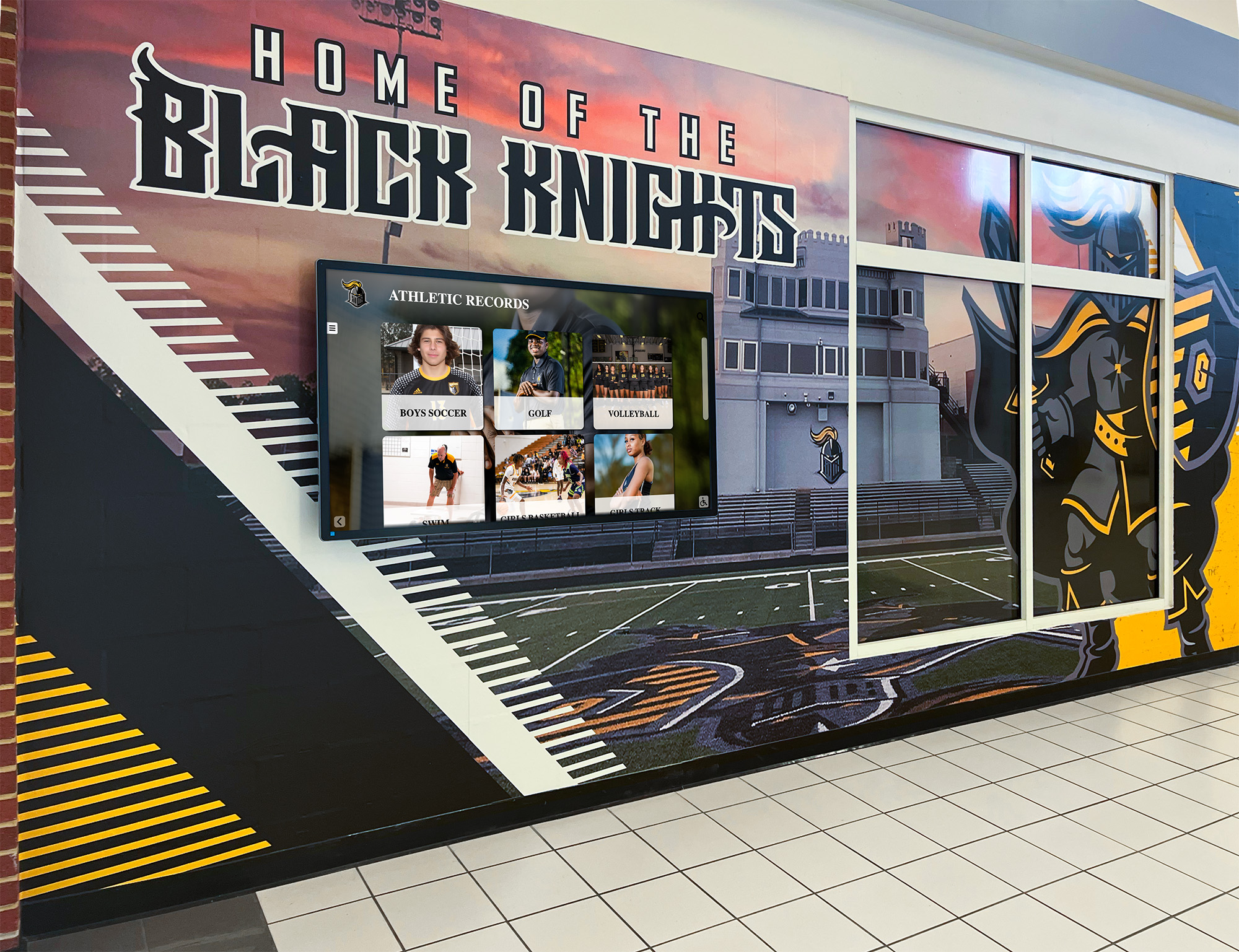
National All-Star Games and Showcase Events
Beyond selection to honor teams, elite lacrosse players may receive invitations to participate in prestigious all-star games and showcase events. These competitions bring together top talent from across regions or the entire nation for high-profile contests that provide exceptional exposure and recognition.
Inside Lacrosse Senior All-American Games select the top 44 senior boys and girls nationally to compete in separate North vs. South all-star games. Selection to these showcase events represents recognition among the absolute elite of high school lacrosse—athletes bound for Division I programs and potential future professional careers.
Adrenaline All-American Games and similar regional showcase events select elite high school seniors to compete before audiences of college coaches and lacrosse enthusiasts. These events generate significant media coverage, provide recruiting exposure, and create memorable experiences for participating athletes.
Participation in national all-star games represents achievement beyond statistical excellence or team success. Players must demonstrate complete mastery of lacrosse skills, tactical intelligence, leadership capabilities, and competitive maturity that enables them to excel alongside and against the nation’s best talent.
The National Lacrosse Hall of Fame
At the pinnacle of lifetime lacrosse achievement stands the National Lacrosse Hall of Fame, located at USA Lacrosse headquarters in Sparks, Maryland. Since its founding in 1957, the Hall of Fame has honored nearly 500 lacrosse legends who by their deeds as players, coaches, officials, and contributors, and by the example of their lives, personify the sport’s greatest contributions.
Hall of Fame inductees represent extraordinary lifetime achievement across all levels of lacrosse—high school legends, college stars, professional players, championship coaches, innovative officials, and dedicated contributors who advanced the sport. Recent classes have included iconic figures like Paul Rabil, who revolutionized professional lacrosse; John Grant Jr., whose scoring records redefined offensive excellence; and Brodie Merrill, who earned All-Pro honors nine times across a 17-season professional career.
While individual schools and programs won’t be inducting athletes into the National Lacrosse Hall of Fame, understanding this ultimate honor provides context for creating recognition hierarchies within local programs. School-level halls of fame can acknowledge graduates who advanced to achieve national recognition, creating connections between local program excellence and the broader lacrosse community.
Why Lacrosse All-Star Recognition Demands Comprehensive Programs
All-star honors in lacrosse deserve recognition programs that match their significance because these achievements represent far more than individual athletic success.
Validating Program Development and Coaching Excellence
When lacrosse players regularly earn all-star recognition, they validate program quality, coaching effectiveness, skill development systems, and competitive scheduling decisions. Schools and clubs that consistently produce all-star athletes demonstrate they provide development opportunities enabling players to reach elite competitive levels.
This track record becomes self-reinforcing. Parents evaluating youth lacrosse programs research which organizations consistently develop all-star caliber talent. High school athletes considering school transfers or club team selections examine all-star production. College coaches evaluating recruits factor program quality into scholarship decisions. Comprehensive recognition of all-star achievement provides tangible evidence of program excellence that attracts talent and creates cycles of sustained success.
For lacrosse programs in competitive regions where multiple schools and clubs vie for talented players, visible all-star recognition differentiates programs. When prospective families tour facilities and encounter comprehensive displays documenting decades of all-star athletes, they observe concrete evidence of development excellence rather than simply hearing recruiting pitches.
Inspiring Current Athletes with Tangible Achievement Models
Visible recognition of all-star achievement provides concrete goals for younger athletes and demonstrates that elite performance is possible within their programs. When freshmen encounter comprehensive displays showing dozens of all-star athletes from their school’s history, abstract aspirations become tangible targets.
These athletes discover specific pathways—what performance levels, statistical benchmarks, skill developments, and competitive experiences enabled prior players to earn all-star honors. A midfielder examining all-conference honorees can identify draw control percentages, ground ball statistics, and assist totals associated with selection. An attacker studying All-American profiles discovers scoring rates, shooting percentages, and game situations where legendary players excelled.
This concrete goal-setting proves particularly valuable in lacrosse, where position-specific roles and statistical categories vary dramatically. Different athletes pursue different pathways to excellence—some through scoring prowess, others through defensive dominance, face-off specialists through draw control mastery, and goalies through save percentages. Comprehensive recognition showcasing diverse achievement types demonstrates that multiple pathways to all-star recognition exist.
Research on athlete motivation consistently demonstrates that specific, challenging goals combined with visible examples of others achieving similar objectives creates powerful developmental effects. All-star recognition displays provide both elements—the specific achievement targets and the proof that athletes from this program have reached those levels.
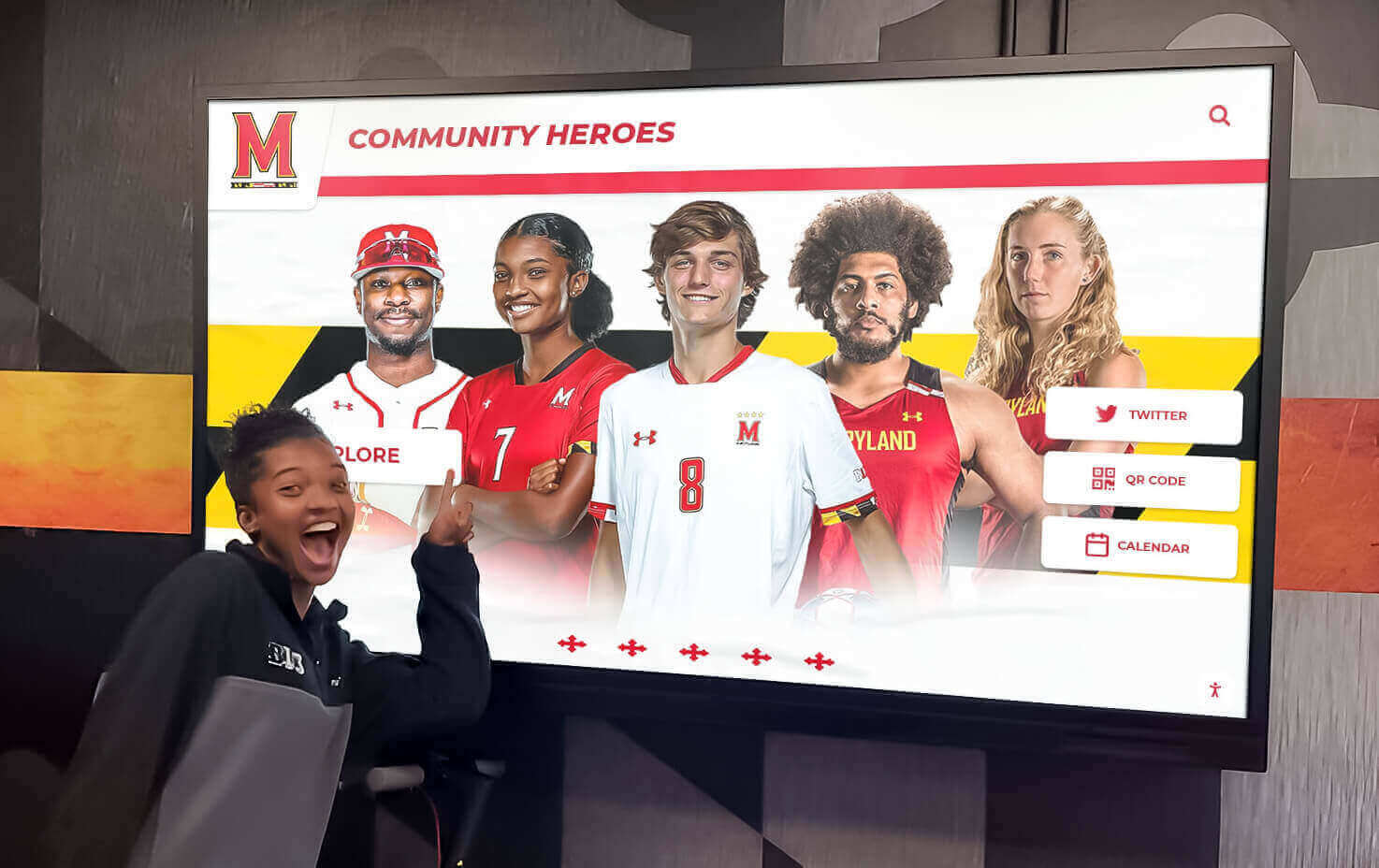
Strengthening Community Pride and Program Culture
Lacrosse all-star athletes bring positive recognition to entire school and club communities. Media coverage, community celebration, and widespread acknowledgment of achievement strengthen connections between programs and the communities they serve. Proper recognition extends these pride moments far beyond brief news cycles, creating year-round visibility reinforcing positive community identity around lacrosse excellence.
In many communities, lacrosse represents relatively recent addition to athletic landscapes compared to traditional sports like football and basketball. Comprehensive all-star recognition helps establish lacrosse programs as integral parts of school athletic traditions rather than peripheral activities. When lacrosse all-stars receive recognition equal to all-star athletes in established sports, programs signal that lacrosse achievement matters equally within institutional culture.
For club lacrosse organizations serving multiple communities, all-star recognition creates shared identity and pride transcending individual team affiliations. Families from various schools unite around shared program membership that has produced consistent all-star excellence, strengthening organizational cohesion and supporting fundraising and volunteer recruitment.
Supporting Recruiting and College Athletic Opportunities
College lacrosse coaches constantly seek talented players for their rosters. Comprehensive all-star recognition displays provide powerful recruiting tools demonstrating program track records of developing college-ready athletes. When high school programs showcase athletes who earned all-star honors and advanced to compete collegiately, they validate their effectiveness at preparing players for higher competitive levels.
These displays prove particularly persuasive during recruiting seasons when athletes and families evaluate high school programs. Parents researching where their talented youth players should attend high school examine program histories. Do athletes from this school regularly earn all-conference honors? All-state recognition? USA Lacrosse All-American selection? How many graduates compete in college lacrosse programs, and at what levels?
Comprehensive recognition systems answer these questions immediately and persuasively. Rather than requiring families to research archived records or rely on anecdotal claims, professional displays provide documented evidence of development excellence spanning decades.
For college-bound athletes, recognition displays also support their own recruiting processes. When high school athletes can reference their all-star selections documented in professional school displays, they strengthen college applications and recruiting communications. College coaches visiting high schools to evaluate multiple players can quickly identify which athletes earned all-star recognition, streamlining their evaluation processes.
Traditional Recognition Limitations and Modern Solutions
For decades, lacrosse programs have recognized all-star athletes through established methods that, while well-intentioned, fall short of providing the visibility and lasting impact these achievements deserve.
Common Traditional Approaches and Their Constraints
Trophy Case Plaques and Nameplates represent the most common recognition method. Schools add small plaques listing all-star athletes by year and honor type to existing trophy cases. While permanent, these displays face severe space constraints that force difficult decisions about which achievements to highlight as programs accumulate decades of all-star selections.
Physical materials deteriorate over time, particularly in high-traffic areas or facilities without climate control. Engraved plaques fade, acrylic covers yellow and scratch, and mounting systems fail. Updating displays requires ongoing expense and effort—typically $150-400 per new plaque including fabrication and installation—that many programs struggle to sustain consistently.
Yearbook Recognition and Athletic Program Pages provide annual documentation of all-star athletes. However, this recognition reaches limited audiences—primarily graduating seniors and their families—and becomes largely inaccessible once published. Current underclassmen rarely reference prior years’ yearbooks, missing opportunities to discover all-star athletes who preceded them and could inspire their development.
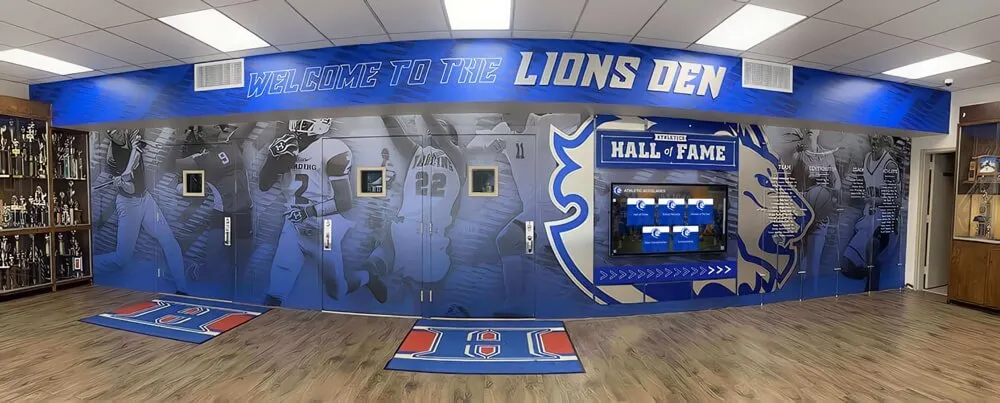
Website Posts and Social Media Announcements offer broader immediate reach than physical plaques. When athletes earn all-star recognition, programs announce achievements through websites and social platforms, generating celebration and awareness. However, this recognition proves fleeting—social media posts disappear from feeds within days, and website news archives rarely receive sustained traffic from audiences who could benefit most.
Awards Banquet Recognition provides meaningful in-person celebration. End-of-season athletic banquets honor all-star athletes before teammates, families, and lacrosse communities. These events create important recognition moments but their impact remains limited to attendees and fades quickly after ceremonies conclude. Younger athletes who would benefit most from exposure to all-star achievement often don’t attend varsity recognition events, missing these moments entirely.
Fundamental Limitations Affecting All Traditional Methods
Traditional recognition approaches share fundamental constraints preventing them from delivering optimal impact:
Limited Long-Term Visibility: Recognition confined to trophy cases, yearbooks, or brief ceremonies reaches small audiences at specific moments. The vast majority of current players—particularly younger athletes who would benefit most—never engage meaningfully with this recognition or understand traditions of excellence within their programs.
Insufficient Storytelling Depth: Traditional displays communicate basic facts—names, years, honor types—but cannot tell complete stories behind all-star achievement. They miss opportunities to share athletes’ development journeys, obstacles overcome, statistical achievements, and inspirational narratives that make recognition meaningful rather than merely informational.
Update Difficulties and Time Delays: Physical recognition requires ongoing material purchases, fabrication time, and installation labor for each new all-star athlete. Schools often delay updates due to budget constraints or logistical challenges, creating situations where recent all-star athletes wait months for their achievements to appear in school displays—diminishing recognition timeliness and impact.
No Discovery or Exploration Capabilities: Traditional displays present information identically to all viewers with no personalization or interaction. Athletes cannot search for position-specific all-stars, filter by specific honor types, or explore related content. This passive presentation generates minimal engagement—brief glances rather than meaningful exploration.
Space Constraints Forcing Difficult Choices: Physical displays face finite capacity. As programs accumulate all-star athletes across decades, trophy cases fill completely, forcing painful decisions about which achievements to recognize and which to omit or archive. These capacity constraints undermine comprehensive recognition that honors all achievement appropriately.
Modern Digital Recognition: Transforming Lacrosse Celebration
Interactive touchscreen displays address every limitation of traditional recognition while introducing capabilities that fundamentally transform how lacrosse programs celebrate all-star athletes.
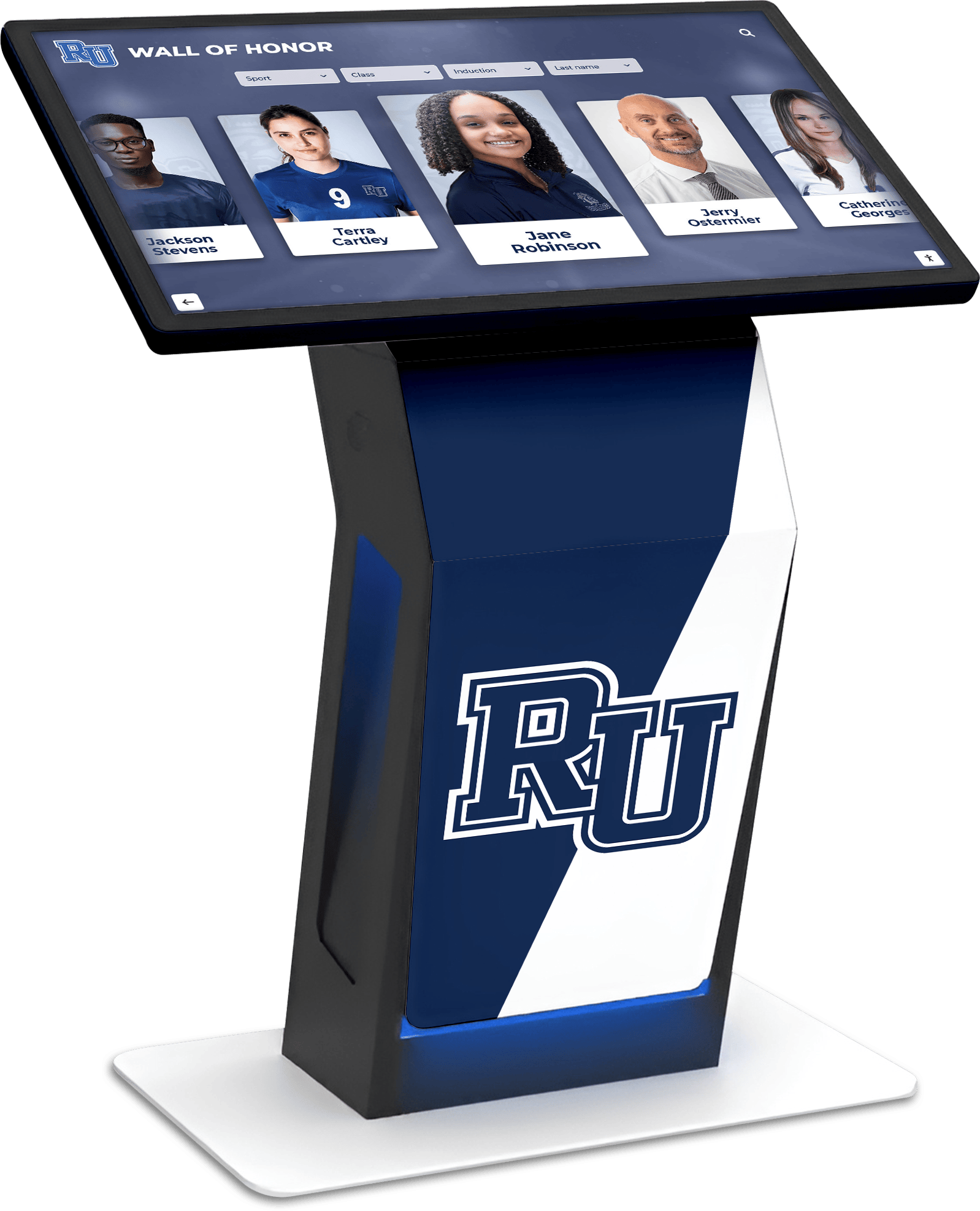
Unlimited Recognition Capacity: Digital systems eliminate physical space constraints entirely. Programs can honor every all-star athlete in history—from recent USA Lacrosse All-Americans to all-conference selections from decades past—without competing for limited trophy case space. Each athlete receives comprehensive profile space impossible with traditional plaques, and adding new honorees requires no additional physical space or hardware investment.
Rich Multimedia Storytelling: Digital platforms transform basic recognition into compelling narratives. All-star athlete profiles include professional action photography from competitions, video highlights of signature performances, complete career statistics and achievements, quotes from coaches and the athletes themselves, information about college commitments and careers, and follow-up content about post-graduation success. This depth creates emotional connections and provides inspirational context that plaques cannot match.
Instant, Real-Time Updates: When athletes earn all-star recognition, schools can add comprehensive profiles to digital displays immediately—no waiting weeks or months for physical materials. This timeliness dramatically increases recognition impact by honoring achievement while excitement remains high. Solutions like Rocket Alumni Solutions provide intuitive content management systems enabling coaches or athletic directors to publish new recognition within minutes.
Interactive Exploration and Discovery: Touchscreen interfaces enable active exploration rather than passive viewing. Athletes can search for players by name, position, or graduation year, filter all-star honorees by specific honor types (All-American, all-state, all-conference), compare statistics across different eras, explore related content connecting teammates, and watch video highlights bringing achievements to life. This interactivity increases engagement time dramatically—users typically spend 3-5 minutes exploring well-designed digital recognition compared to brief glances at traditional plaques.
Multi-Platform Accessibility: Digital recognition extends beyond physical display locations through web-based versions accessible from anywhere. Alumni can show their families their all-star recognition from any location. College coaches can research program histories before campus visits. Prospective families can explore lacrosse excellence during decision-making. This accessibility multiplies recognition impact far beyond static physical displays.
Engagement Analytics and Insights: Modern digital platforms provide analytics showing how visitors interact with recognition content. Programs track which all-star athletes receive the most profile views, what search terms users employ most frequently, how usage patterns vary across seasons, and which content types generate strongest engagement. These insights inform content development priorities and demonstrate recognition value to stakeholders.
Creating Comprehensive Lacrosse All-Star Athlete Profiles
The quality and depth of all-star athlete profiles directly determine how effectively recognition inspires current players and preserves achievement for future generations.
Essential Profile Components for All-Star Recognition
Complete Biographical and Achievement Information: Comprehensive profiles begin with thorough details providing context about each all-star athlete. Include full name, graduation year, position and specialized role (attack, midfield, defense, goalkeeper, face-off specialist), all-star honors earned with specific recognition levels, and additional accolades like team captaincy, academic all-star honors, or all-state selections in other sports.
Document the athlete’s career progression showing development from freshman through senior years. Highlight specific skill developments, statistical improvements, position changes, and competitive experiences that enabled elite performance. This progression context helps younger athletes understand that all-star recognition typically results from sustained development rather than innate talent alone.
Career Statistics and Performance Benchmarks: All-star recognition reflects exceptional statistical performance and competitive achievement. Profiles should document specific accomplishments that earned all-star honors including career and single-season statistics in relevant categories—goals, assists, points for offensive players; ground balls, caused turnovers, defensive plays for defenders; save percentages and goals-against averages for goalkeepers; face-off win percentages for specialists.
Provide statistical context comparing athletes’ numbers to program history or state/national standards. When current players understand that all-conference midfielders typically average 2+ goals per game or all-state defenders cause 3+ turnovers per game, they gain concrete targets for their own development.
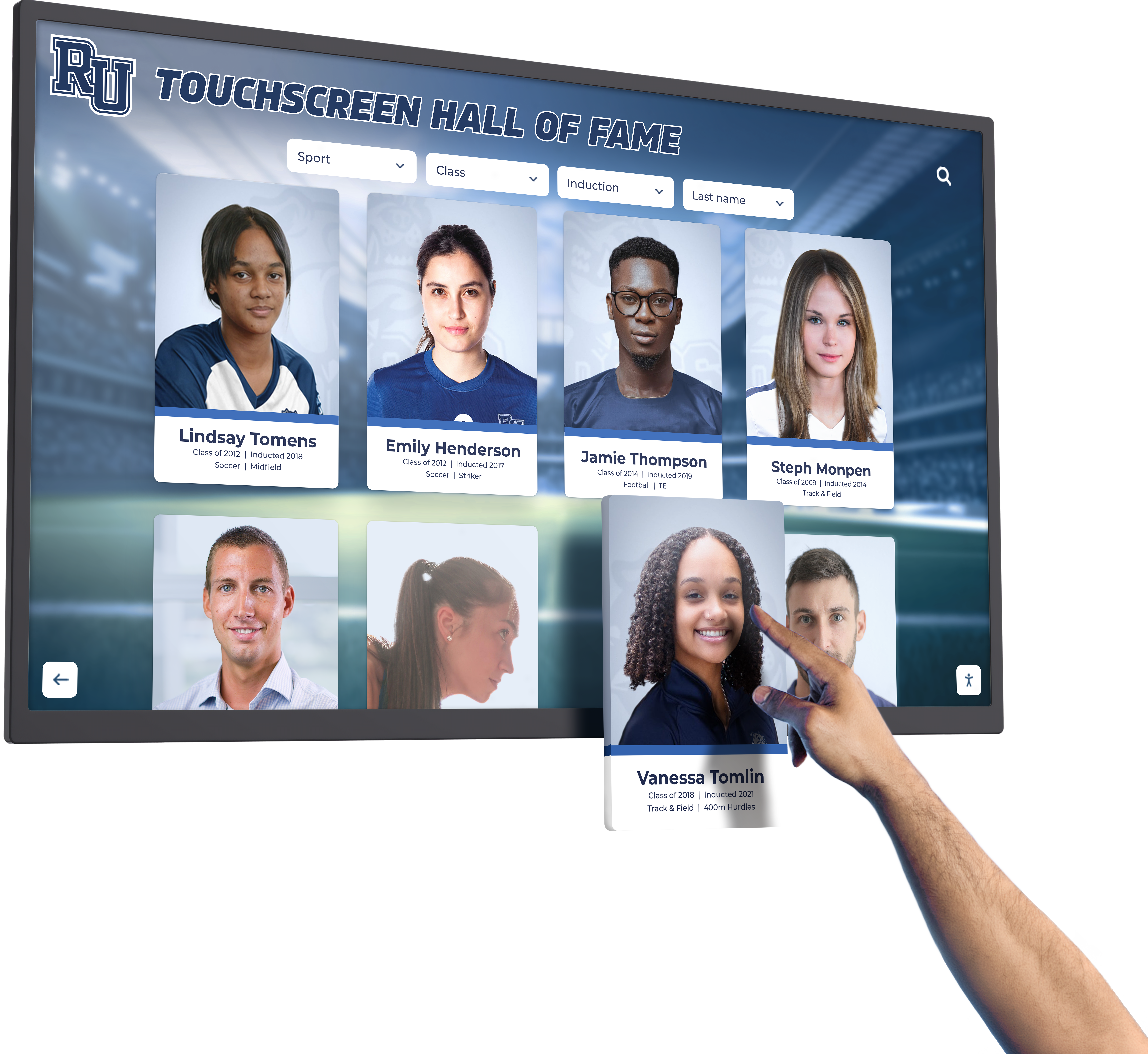
High-Quality Visual Content: Professional photography brings all-star profiles to life and creates emotional connections with recognized athletes. Include multiple action photos showing athletes in competition demonstrating position-specific skills—dodging defenders, making saves, winning face-offs, setting up goals. Feature team celebration photos capturing memorable moments after victories. Include awards ceremony images from all-star recognition events. Add progression photos showing development from underclassmen through senior seasons.
Investment in quality photography demonstrates that all-star achievement matters and deserves professional documentation befitting its significance. Many programs coordinate with parents, local media, or school photography programs to capture high-quality imagery during seasons, building content libraries supporting recognition displays.
Personal Narratives and Perspectives: First-person perspectives transform recognition from statistics into inspiring human stories. Feature quotes from athletes reflecting on their journeys—challenges overcome, meaningful moments, what all-star recognition meant to them, advice for younger players pursuing similar goals. Include coach commentary providing context about work ethic, leadership, character, and contributions beyond statistics.
Add perspectives from parents or family members highlighting support systems behind athletic achievement and pride these honors created. When appropriate, include content from teammates discussing how the all-star athlete elevated their games or provided leadership.
College Athletic Commitments and Beyond: All-star recognition often leads to college athletic opportunities. Profiles should include information about college lacrosse commitments, documentation of college career highlights and achievements, academic majors and post-graduation careers, and reflection on how high school all-star experience influenced development. These elements demonstrate that all-star achievement represents not just endpoints but foundations for continued success—making recognition more meaningful and aspirational.
Many programs integrate all-star recognition with college commitment celebration, creating comprehensive pathways showing progression from high school excellence to collegiate opportunities and beyond.
Position-Specific Recognition Considerations
Lacrosse features specialized positions with distinct skill requirements and statistical measures. Effective all-star recognition acknowledges this diversity through position-appropriate content and achievement categories.
Attack and Offensive Players focus on scoring prowess, assist production, and offensive efficiency. Highlight goals per game averages, shooting percentages, assist-to-goal ratios, man-up (extra-man offense) production, and ability to create scoring opportunities. Showcase dodging skills, shooting variety, and offensive intelligence through video highlights demonstrating signature moves and game-winning goals.
Midfielders balance offensive and defensive responsibilities requiring exceptional conditioning and versatility. Document two-way statistics including goals, assists, ground balls won, and caused turnovers. Emphasize transition play contributions, ability to play complete games, face-off contributions when applicable, and leadership roles midfielders often assume. Highlight the complete midfielder skillset that distinguishes elite players at this demanding position.
Defensive Players and Long-Stick Midfielders excel through opponent limitation, possession creation, and clearing efficiency. Feature caused turnover statistics, ground balls recovered, clear success percentages, and opponents held below scoring averages. Showcase defensive technique through video highlights of key plays—crucial stops, possession changes, and defensive communication. Emphasize the elite lacrosse IQ and positional discipline that enables defensive excellence.
Goalkeepers serve as last line of defense requiring exceptional athleticism, mental toughness, and team leadership. Document save percentages, goals-against averages, clear percentages, and performance in high-pressure situations. Feature video of signature saves—point-blank stops, reflex saves, and momentum-changing plays. Highlight the leadership and communication skills that distinguish elite goalkeepers as defensive quarterbacks.
Face-Off Specialists control possession through specialized skills often determining game outcomes. Showcase face-off win percentages, ground ball recoveries on face-offs, ability to win crucial possessions in critical moments, and consistent performance across seasons. Document the technical excellence and competitive toughness required for face-off dominance.
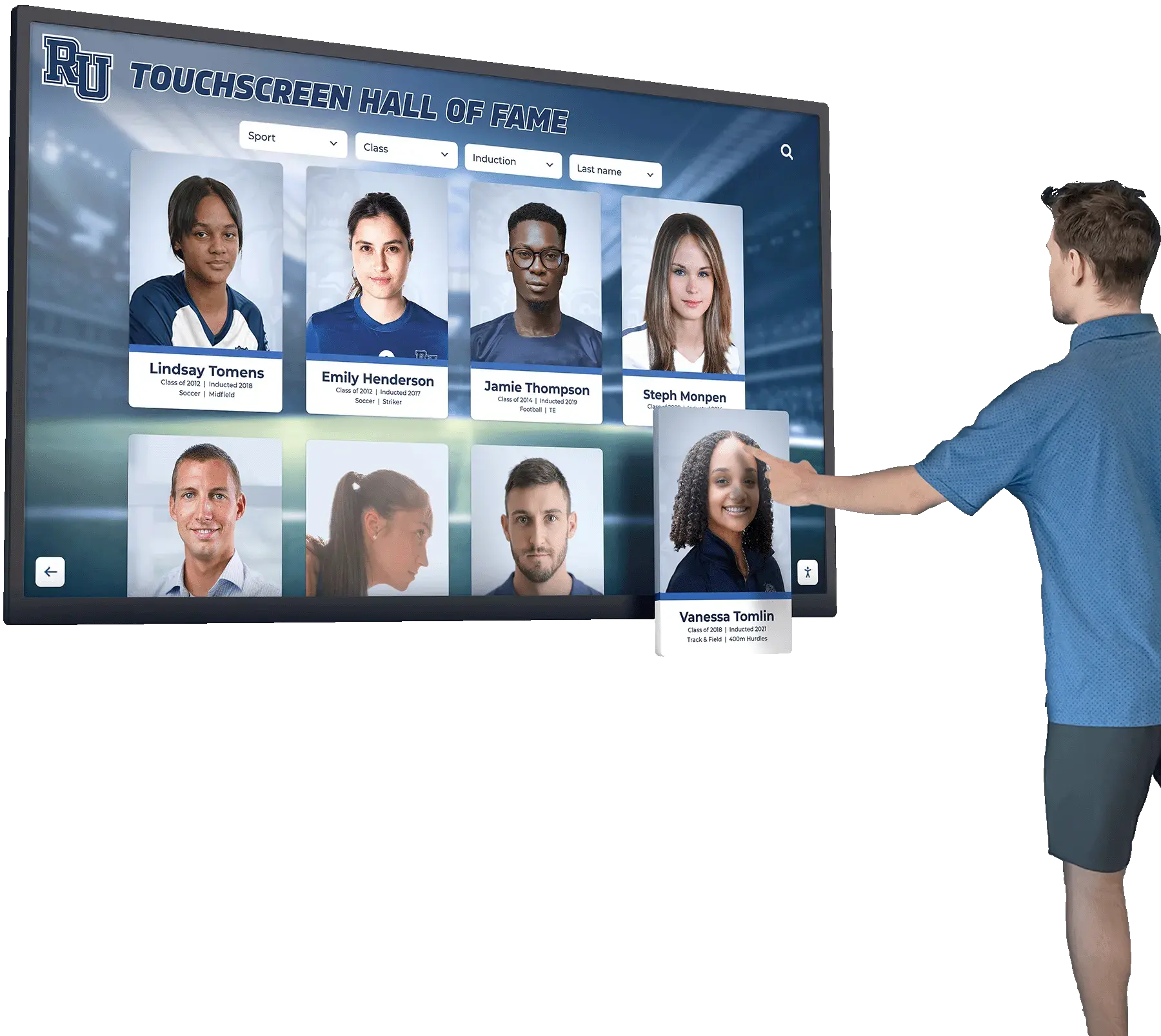
Implementation: Building Lacrosse All-Star Recognition Programs
Schools and organizations ready to create or enhance lacrosse all-star recognition should approach implementation strategically to ensure sustainable, effective systems serving communities for decades.
Planning and Needs Assessment
Historical Research and Documentation: Begin by researching and documenting all-star athletes from program history. Review athletic department records, media guides, yearbooks, newspaper archives, and online resources identifying every athlete who earned all-star honors. Distinguish between different recognition levels—USA Lacrosse All-Americans, all-state selections, all-conference honors, and all-star game participants.
Interview longtime coaches, athletic directors, and community members who can recall all-star athletes from prior decades. Contact lacrosse alumni associations for assistance identifying and connecting with historical all-star athletes who might contribute information, photographs, and memorabilia to recognition efforts. Many programs discover that alumni enthusiastically support recognition initiatives documenting their achievements and program heritage.
Accept that historical records may contain gaps, particularly for programs operating for many decades. Document what you can verify through reliable sources while continuing research that may uncover additional information over time. Incomplete recognition documenting verified achievements proves more valuable than delayed programs waiting for perfect information that may never materialize.
Current Process Establishment: Develop systematic processes for documenting future all-star athletes immediately upon selection. Create information submission forms for athletes and families providing biographical details, statistics, quotes, media, and permissions. Assign specific staff responsibility for gathering photos and video during competitions and recognition events. Establish timelines ensuring new all-star athletes appear in recognition displays within days or weeks of selection announcements, maintaining relevance and maximizing impact.
Stakeholder Engagement and Planning: Involve multiple constituencies in planning to ensure recognition systems meet diverse needs and build broad support. Consult with athletic directors about program-wide recognition priorities and available resources. Engage lacrosse coaches who understand sport-specific recognition traditions and can identify all-star athletes from program history. Gather input from current athletes about what recognition would be meaningful to them. Seek alumni perspectives on how recognition could maintain their connections to programs. Consider parent feedback about how recognition honors families.
This inclusive approach surfaces important considerations while building enthusiasm for recognition investment. When stakeholders participate in planning, they develop ownership of resulting programs and become advocates supporting implementation and ongoing operation.

Technology Selection and Installation
Hardware Considerations for Lacrosse Facilities: Select commercial-grade touchscreen displays designed for continuous operation in athletic facility environments. Key specifications include screen size appropriate for viewing distances in lobbies or gyms (typically 55-75 inches), commercial durability rated for 16+ hour daily operation, responsive touchscreen technology supporting intuitive interaction, and mounting options compatible with your installation locations—wall-mounted or freestanding kiosks.
Work with vendors experienced in athletic facility installations who understand unique requirements of school and club environments. Ensure displays feature protective glass resistant to impact, anti-glare coatings for visibility under various lighting conditions, and enclosures protecting electronics from dust and moisture common in athletic facilities.
Software Platform Selection: Choose platforms purpose-built for sports recognition rather than generic digital signage adapted for this application. Essential capabilities include intuitive content management requiring no technical expertise, flexible template systems designed specifically for athletic recognition, robust multimedia support for photos, videos, and statistical displays, searchable databases with filtering by position, year, honor type, and other criteria, mobile-responsive web versions extending access beyond physical displays, and analytics tracking engagement patterns and popular content.
Specialized platforms like Rocket Alumni Solutions provide turnkey solutions optimized for school athletic recognition needs, eliminating customization work required by general-purpose alternatives. These purpose-built systems include sports-specific features like statistical integration, position categorization, and season-specific content management.
Strategic Location Planning: Install touchscreen displays in high-traffic locations ensuring maximum visibility and usage. Lacrosse facility entrances provide natural locations where players spend significant time before and after practices and games. Main school entrance lobbies guarantee exposure for current students, prospective families touring campuses, and community members attending events. Athletic department offices or commons areas provide additional touchpoints for athletes spending time in these spaces.
For programs with separate boys and girls lacrosse teams, consider whether shared displays honoring both programs or separate dedicated displays best serve your community. Ensure selected locations have adequate electrical power and network connectivity, working closely with facilities and IT departments during site evaluation and installation planning.
Content Development and Management Workflows
Photography and Video Standards: Establish consistent quality standards ensuring professional presentation across all recognition content. Specify minimum image resolution (typically 1920x1080 or higher for display quality), preferred action shooting showing athletes demonstrating lacrosse skills, lighting and exposure requirements for clarity, uniform and team branding guidelines, and file naming conventions for organizing digital assets.
Assign responsibility for capturing high-quality content during competitions and recognition events. Athletic departments might designate staff photographers, engage school media programs, recruit parent volunteers with photography skills, or budget for professional photography services documenting the most significant all-star athletes and moments.
Information Collection and Verification Systems: Create standardized forms and processes for gathering comprehensive information about each all-star athlete. Develop questionnaires capturing biographical details, career statistics and achievements, memorable moments and personal reflections, college plans and commitments, and permissions for using names, images, and information in public displays.
Implement verification procedures ensuring accuracy before publication. Nothing undermines recognition credibility faster than factual errors in athlete profiles. Cross-reference statistical information with official records, verify honor selections against published all-star team rosters, and when possible, have athletes or families review content before publication.
Train coaches and athletic department staff on information submission processes making participation efficient rather than burdensome. Simple online forms, clear submission deadlines, and rapid publication timelines increase cooperation and ensure timely recognition.
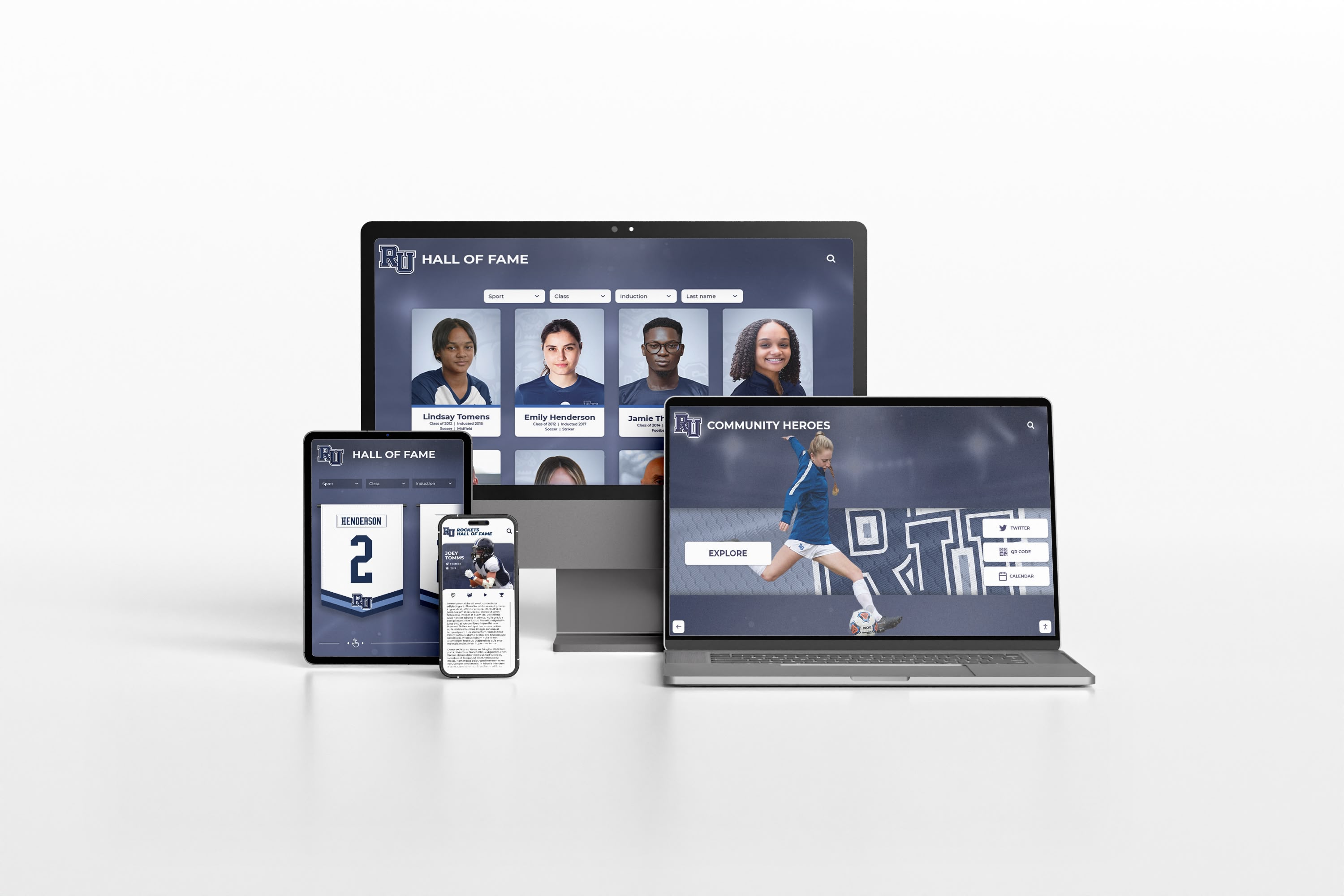
Update Schedules and Maintenance Protocols: Establish regular cadences for updating recognition content maintaining currency and relevance. Add new all-star athletes immediately upon selection announcements during lacrosse seasons—late spring for high school programs, varying for college and club teams. Update existing profiles quarterly with college career developments, academic achievements, or post-athletic accomplishments for recent alumni.
Conduct annual comprehensive reviews verifying all information remains accurate and current, making corrections as needed. Schedule seasonal feature content highlighting specific all-star athletes, anniversary recognition for milestone achievements, or historical retrospectives examining program evolution through different eras.
Regular updates keep displays fresh and give repeat visitors new content to discover. Athletes and families notice when recognition systems remain current and professional, strengthening confidence that their achievements will be honored appropriately and maintained permanently.
Integrating All-Star Recognition Within Comprehensive Lacrosse Programs
Lacrosse all-star recognition delivers maximum value when integrated within broader athletic recognition ecosystems celebrating diverse excellence across entire programs.
Connection to Team Achievement Recognition
Rather than creating isolated all-star displays, integrate individual recognition within comprehensive systems showcasing team championships, tournament successes, program records, season highlights, and coaching milestones. This integration creates complete pictures of program excellence demonstrating how all-star athletes contributed to collective achievements while pursuing individual honors.
Digital record board systems enable seamless integration—athletes who set program records or earned all-star honors appear in multiple contexts within unified platforms. A midfielder might be featured as an all-conference selection, program career points leader, member of a state championship team, and college scholarship recipient—comprehensive recognition documenting full achievement.
Complementing Academic Recognition Programs
Many lacrosse all-star athletes excel academically as well as athletically. USA Lacrosse All-Academic honors specifically recognize this dual excellence, requiring 3.7+ GPAs alongside athletic achievement. Integrating athletic all-star recognition with academic excellence programs demonstrates institutional commitment to balanced student-athlete development.
Profile athletes who earned both athletic all-star honors and academic recognition—National Honor Society membership, AP Scholar awards, academic all-state selections, or valedictorian/salutatorian honors. Showcase college academic achievements alongside athletic careers, emphasizing that lacrosse excellence and academic success reinforce rather than compete with each other.
Supporting Multi-Sport Athletes
Many lacrosse all-star athletes compete in multiple sports, earning all-star recognition across different activities. Comprehensive recognition systems acknowledge these multi-sport achievements, presenting complete athletic profiles rather than sport-siloed fragments.
When athletes earned all-conference honors in both lacrosse and football, or all-state recognition in lacrosse and basketball, document these complete athletic careers. Multi-sport achievement demonstrates exceptional athleticism, work ethic, and time management—qualities programs should celebrate comprehensively.

Leveraging Recognition for Player Development
Beyond celebrating past achievement, strategically leverage all-star recognition to support current athlete development. Create goal-setting programs helping players understand pathways to all-star consideration—the statistical benchmarks, skill developments, and competitive experiences typically associated with all-conference, all-state, or All-American selection.
Provide statistical tracking showing athletes’ progress toward benchmarks. When players can compare their developing statistics against historical all-star averages, they gain concrete feedback on development trajectories. Offer mentorship connections linking current athletes with all-star alumni from similar positions who can provide guidance and inspiration.
Highlight the dedication, practice habits, training commitments, and mental approaches that enabled all-star achievement beyond natural talent. Recognition becomes not just celebration of past achievement but inspiration and roadmap for current athletes pursuing similar excellence.
Best Practices from Successful Lacrosse Recognition Programs
Programs that have successfully implemented comprehensive lacrosse all-star recognition share common approaches and lessons learned that can guide planning and implementation.
Start Comprehensively But Launch Iteratively
Rather than waiting to document every historical all-star athlete before launching recognition displays, begin with comprehensive recent content and expand historical coverage systematically. Launch with detailed profiles for athletes from the past decade where information and media are readily available. This creates immediate impact and value while demonstrating commitment to recognition.
Systematically add historical content on regular schedules, working backward through program history as research uncovers athletes and materials. This iterative approach delivers value quickly while building toward comprehensive coverage over time rather than delaying launch indefinitely pursuing impossible perfection.
Celebrate All Levels of Achievement Appropriately
Balance recognition of USA Lacrosse All-Americans—the highest individual honor—with appropriate celebration of all-state, all-conference, and all-star game participants. Even all-conference recognition represents exceptional achievement placing athletes among the best in their leagues. Comprehensive recognition demonstrates that programs value all excellence while celebrating every athlete who earned honors beyond school-level awards.
Create subtle hierarchical presentation emphasizing All-Americans and multiple-time honorees without diminishing others’ accomplishments. Featured profiles, prominent placement, or enhanced multimedia content can highlight elite achievement while ensuring all honorees receive professional recognition appropriate to their accomplishments.
Maintain Equity Across Boys and Girls Programs
Many schools field both boys and girls lacrosse teams. Comprehensive recognition ensures equitable celebration of achievement across both programs. Apply selection and recognition standards consistently, ensure equal display space and prominence when using separate displays, provide comparable content depth and multimedia quality, and celebrate both programs’ traditions and excellence.
Title IX principles of equity in athletic recognition extend to all aspects of athletic programs including celebration of achievement. Systematic attention to equity prevents inadvertent bias while demonstrating institutional commitment to honoring excellence regardless of gender.
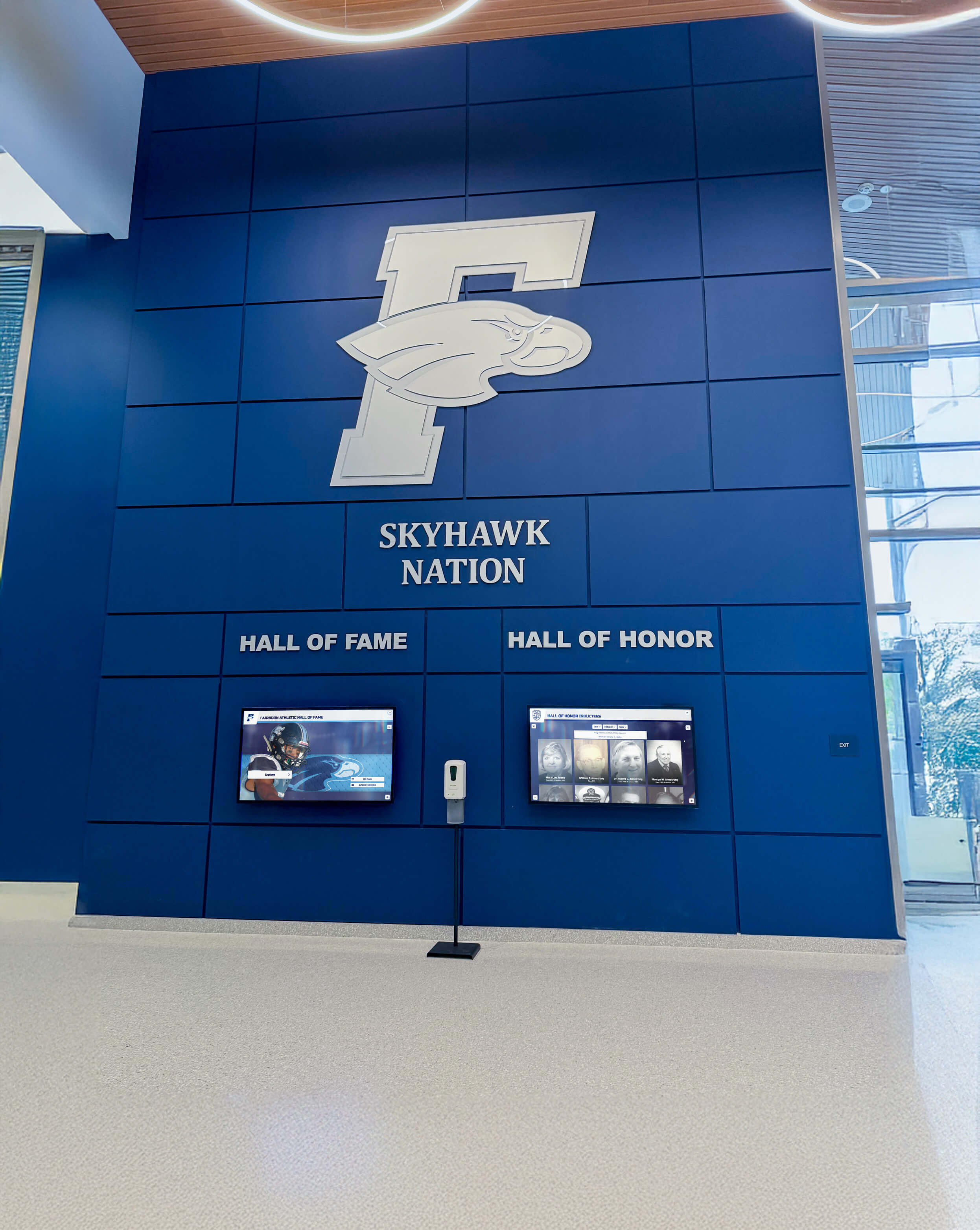
Integrate Recognition with Broader Communications
Extend recognition impact beyond physical displays through integrated communication strategies. Feature new all-star athlete profiles through school social media channels when athletes appear in recognition displays. Include all-star recognition updates in athletic department newsletters, lacrosse program communications, and alumni publications. Create social media content encouraging facility visitors to explore recognition displays when attending games and events.
Generate website content embedding digital recognition profiles that attracts organic search traffic from families researching program excellence. This multichannel approach multiplies recognition reach far beyond those physically viewing displays, extending celebration to broader communities and creating lasting digital documentation easily shared through social networks.
Establish Sustainable Management Workflows
Success depends on sustainable processes maintaining content currency year after year regardless of staff transitions. Assign specific staff responsibility for recognition updates integrated into existing job descriptions rather than relying on volunteer efforts that fade. Create simple submission processes for coaches providing athlete information and media immediately upon all-star selection announcements.
Establish annual review cycles verifying all information remains accurate and comprehensive. Schedule regular recognition celebration events maintaining community awareness and engagement with displays. Document all procedures in writing so knowledge transfers smoothly during staff changes. These sustainable workflows prevent recognition from becoming outdated and irrelevant.
Measuring Success and Demonstrating Value
Effective recognition programs assess impact through quantitative and qualitative measures demonstrating return on investment and informing continuous improvement.
Engagement Metrics and Usage Analytics
Track digital display usage and engagement patterns using built-in analytics. Monitor daily and monthly interaction counts showing how many people engage with recognition content, average session duration indicating depth of engagement, most-viewed all-star athlete profiles revealing which content resonates most strongly, search query patterns demonstrating how visitors explore recognition databases, and peak usage times informing optimal update scheduling.
Growing engagement over time validates recognition investment and identifies opportunities for content enhancement. Declining trends may signal need for content refreshment, promotional campaigns, or user experience improvements.
Athlete and Family Feedback
Systematically gather input from athletes about recognition impact. Survey current players about awareness of all-star recognition displays and whether they influenced goals and motivation. Ask all-star athletes whether recognition felt meaningful and appropriately honored their achievements. Conduct focus groups with younger players exploring how they perceive all-star achievement and whether recognition makes these accomplishments seem attainable.
Monitor social media engagement with recognition content shared by athletes and families, noting both quantity and sentiment of responses. Positive athlete and family feedback validates that recognition programs achieve their core purpose of honoring achievement meaningfully.
Program Development Impact
Observe whether improved recognition affects program culture and competitive outcomes. Measure whether athlete participation and retention rates improve following recognition implementation. Track whether more athletes achieve all-star recognition after displays create aspirational targets and development pathways.
Assess team performance trends noting whether recognition contributes to improved competitive results at conference, state, or national levels. Survey coaches about perceived impacts on athlete motivation, goal-setting behaviors, and program culture—gathering qualitative insights that quantitative metrics may miss.
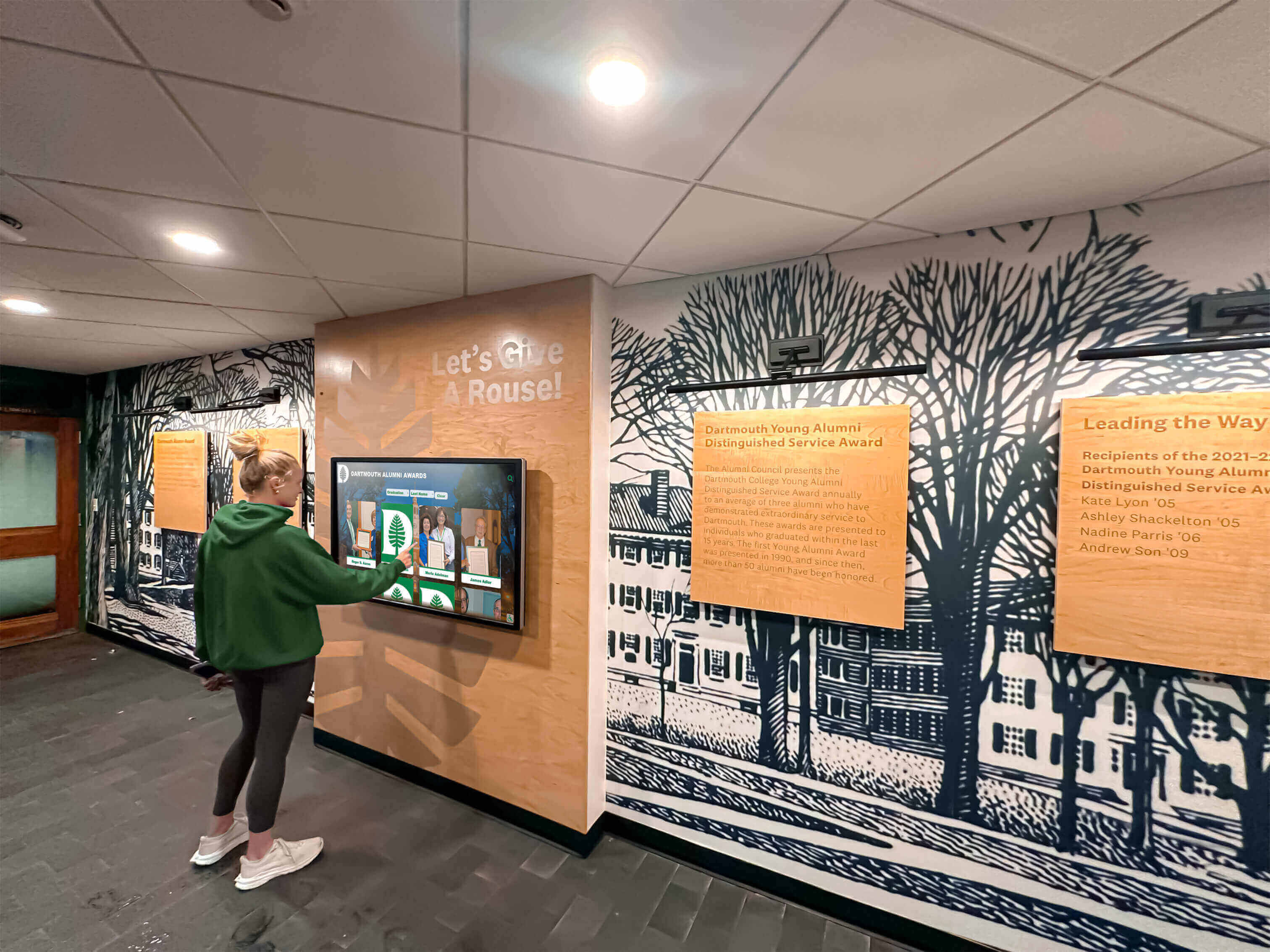
The Future of Lacrosse Recognition: Emerging Trends and Technologies
Understanding emerging trends helps programs make forward-thinking investments remaining relevant as technology and expectations evolve.
Enhanced Video and Highlight Integration
Video content increasingly dominates how audiences consume information, particularly younger demographics. Future lacrosse recognition will feature more extensive video integration—comprehensive highlight reels, full-game footage, 360-degree perspective videos, and augmented reality experiences overlaying statistics and information onto video content.
Programs establishing systematic video collection processes now—documenting games, capturing interviews, recording recognition ceremonies—build content libraries supporting future recognition enhancements while preserving achievement in rich multimedia formats.
Artificial Intelligence and Personalization
AI capabilities will increasingly enable personalized recognition experiences. Recommendation engines might suggest specific all-star athletes based on users’ positions, graduation years, or viewing patterns. Natural language search could allow conversational queries like “show me all-conference attackers from the 2010s.” Automated content enhancement might analyze photos and videos automatically tagging athletes, plays, and achievements reducing manual processing time.
Social Integration and Community Content
Future recognition systems will facilitate greater social connection and community content contribution. Alumni might contribute their own photos, videos, and memories enriching official recognition with personal perspectives. Current athletes could interact with all-star alumni through integrated mentorship platforms. Community members might comment on and share favorite all-star athlete stories.
These social features will transform recognition from institutional communication into community conversation, deepening engagement while expanding content beyond what programs can produce internally.
Real-Time Performance Integration
Advanced systems may integrate with game statistics and performance tracking platforms. Real-time statistical updates could show current athletes’ progress toward benchmarks associated with all-star consideration. Performance comparison tools could display how current players’ statistics measure against historical all-star averages at similar career stages. This integration would make recognition more dynamic and immediately relevant to current competitive seasons.
Conclusion: Honoring Lacrosse Excellence, Inspiring Future Champions
Lacrosse all-star recognition represents celebration of elite achievement in one of America’s fastest-growing and most exciting sports. Athletes who earn these prestigious honors through years of skill development, tactical mastery, competitive excellence, and dedication deserve recognition matching the magnitude of their accomplishments—comprehensive celebration preserving legacies, honoring achievements, and inspiring future athletes to pursue similar excellence.
Modern digital recognition displays transform how lacrosse programs celebrate all-star athletes. By combining unlimited recognition capacity with rich multimedia storytelling, intuitive interactivity, and sophisticated content management, these platforms create lasting value across multiple dimensions: honoring individual athlete achievement with depth impossible through traditional plaques, inspiring current players by making elite performance visible and aspirational, demonstrating program excellence to prospective athletes and families, strengthening alumni connections through ongoing recognition and engagement, and preserving institutional history for future generations.
The transition from traditional trophy cases and brief yearbook mentions to comprehensive interactive recognition represents more than technological upgrade—it reflects evolved understanding of how effective recognition honors achievement while inspiring continued excellence. Every all-star athlete featured in digital displays becomes part of an ongoing story about dedication, performance, and achievement that motivates current students, attracts talented players, and strengthens program culture around lacrosse excellence.
Schools and organizations ready to transform lacrosse all-star recognition should begin planning today. Research historical all-star athletes documenting program traditions of excellence. Establish systematic processes for celebrating current and future all-star honorees. Evaluate technology platforms selecting solutions designed specifically for athletic recognition needs. Engage stakeholders building broad support for recognition investment. And commit to sustainable workflows ensuring recognition remains current and relevant for decades to come.
Solutions like Rocket Alumni Solutions provide comprehensive platforms combining proven technology, intuitive management, and dedicated support specifically designed for schools celebrating athletic achievement. From initial planning through years of ongoing use, the right technology partner transforms recognition from administrative task into celebration centerpiece that truly honors and inspires excellence.
Ready to create lacrosse all-star recognition worthy of these exceptional achievements? Modern digital recognition displays provide proven solutions honoring athletic excellence while building program culture where achievement flourishes. Your all-star athletes earned elite honors through years of dedication—they deserve recognition that matches their commitment and inspires the next generation to pursue similar excellence.
